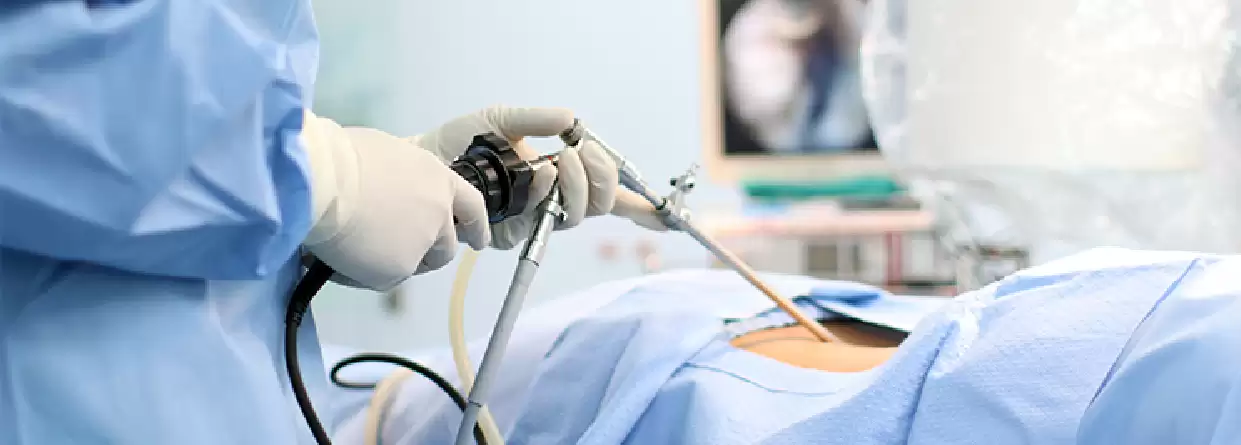
 Ambulance Services: 07340054470
Ambulance Services: 07340054470
General Surgery | Posted on 05/11/2021 by Dr. Anukriti Sood
Over the years, with the help of technology, surgeons have adapted and perfected laparoscopic surgery. Laparoscopic surgery is also known as keyhole surgery or minimally invasive surgery. The use of this surgery is increasing with time. This technique can be used for many exploratory needs. If you want to know everything about this surgery, then read this blog till the end. We will discuss the procedure, scope, benefits, risks, etc. So, let's get started.
Laparoscopic surgery is a technique that lets surgeons discover and treat the body's organs through keyhole incisions. Nowadays, this surgery is used for general surgeries like orthopaedic, gynaecological, etc. While traditional and open surgeries require large incisions, laparoscopic involves smaller incisions and smaller cuts.
When a surgeon performs laparoscopic surgery, he/she does it under general anaesthesia. The surgeon makes several 0.5-1 cm incisions called ports through which the surgeon inserts tubular instruments. Surgery is performed through an instrument called a laparoscope. The instrument transmits high-resolution and displays videos on the screen in the operation theatre. Laparoscope instructs the surgeon and the rest of the instruments help in cutting and sewing.
Laparoscopy surgery is identified to be the most viable technique and the scope of this surgery follows different domains such as:
The primary reason for performing a laparoscopy is to examine, understand, and diagnose pelvic and abdominal pain. If the cause is not detected by non-invasive methods, then the doctor finds out the cause by the method of laparoscopy. In many cases, laparoscopy is done with the help of imaging techniques to diagnose abdominal issues. This involves ultrasound, CT scan, and MRI scan. In addition, laparoscopy is performed to investigate the conditions of the following organs:
Once issues are identified with the above organs, it becomes easier for the doctor to detect:
There are many advantages of laparoscopic surgery when compared to traditional or open surgery. These benefits are:
No matter what the surgery type is, there are always risks that come with it and the same is with laparoscopic surgery. Here are some complications that can be there:
However, all these complications are very less in keyhole surgeries than in traditional or open surgeries.
Here are the guidelines usually given by doctors to follow before visiting the hospital for your laparoscopy:
Here are some of the tests which are usually ordered before performing the laparoscopic surgery. But, first here is the medical information that might be required by your surgeon:
Here are other additional tests your surgeon might order before performing a laparoscopy:
Once the surgery is over, the patient is kept under observation for some time. The healthcare team monitors vital signs, breathing, and heart rate closely for some time. The hospital staff also checks the reactions of anaesthesia, as well as prolonged bleeding. Discharge from the hospital depends on the condition of the patient. In some cases, the patient may have to spend a night in the hospital. It might take around two weeks for a patient to completely back to their regular schedules, however, meanwhile here are certain things that can be included to ensure fast recovery:
The methods involved in laparoscopic surgery are progressing and evolving extensively over time. It not only is a safe method for surgeries but also the best way to diagnose, and treat different conditions of the organs. It has various advantages and helps enhance the quality of life for a patient. It is important to understand that all surgeries come with probable risks and certain complications including laparoscopic surgery.
It is recommended to seek medical advice if after surgery symptoms like high fever, chills, foul smell from the incision, redness, swelling in a leg, continuous vomiting, and pain in the surgical area. If you are experiencing a problem with any of your organs, then make sure to consult the doctor to discuss your options. Rukmani Birla Hospital is one of the best multi-speciality hospitals you can find for laparoscopic surgery as we have accommodated the most experienced and professional surgeons with us. So, book your appointment now and resolve your worries within no time.
FAQs
Yes, laparoscopic surgery is the safest surgical procedure than traditional or open surgeries.
No, the laparoscopic procedure is performed under general anaesthesia, so you won’t experience any pain during surgery.
Incisional hernia can be experienced by a patient after laparoscopic surgery, although it's a rare complication that can occur.
After laparoscopic surgery, it is recommended to sleep on the back or left side and not on the stomach or right side.